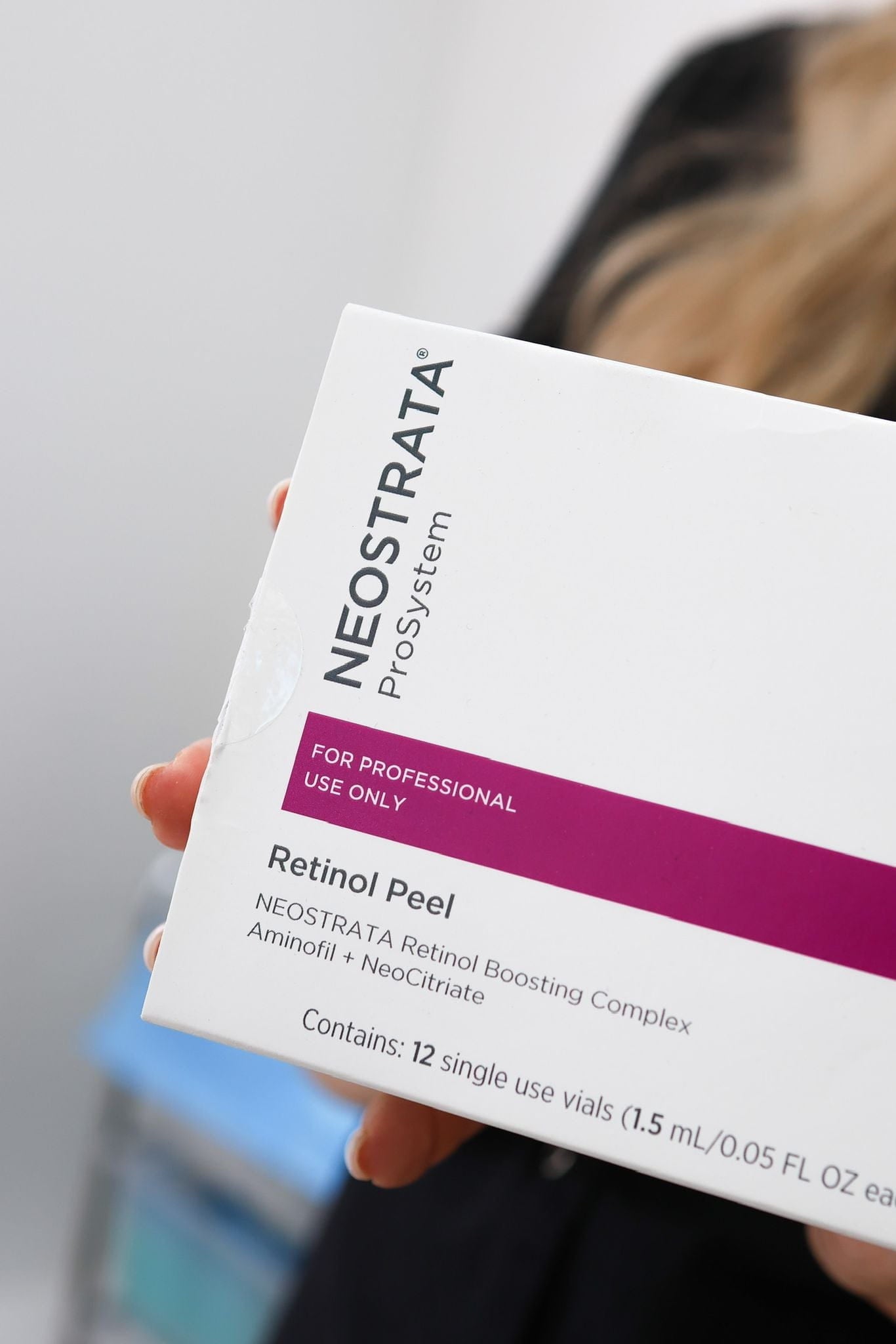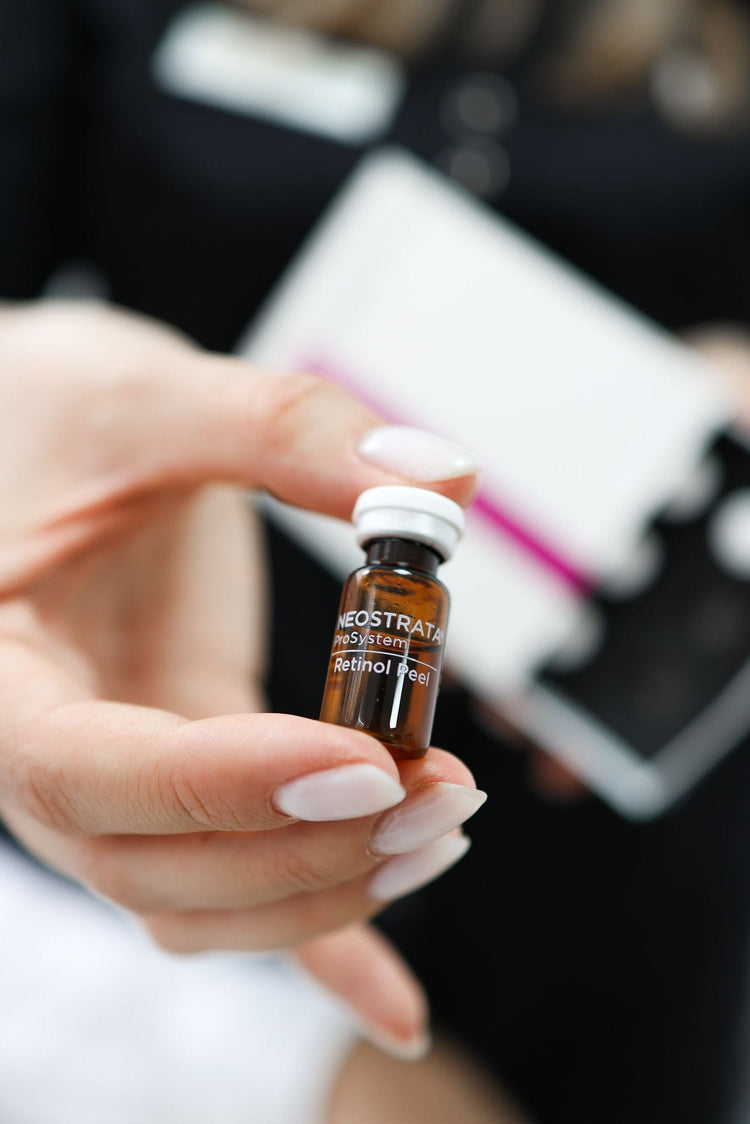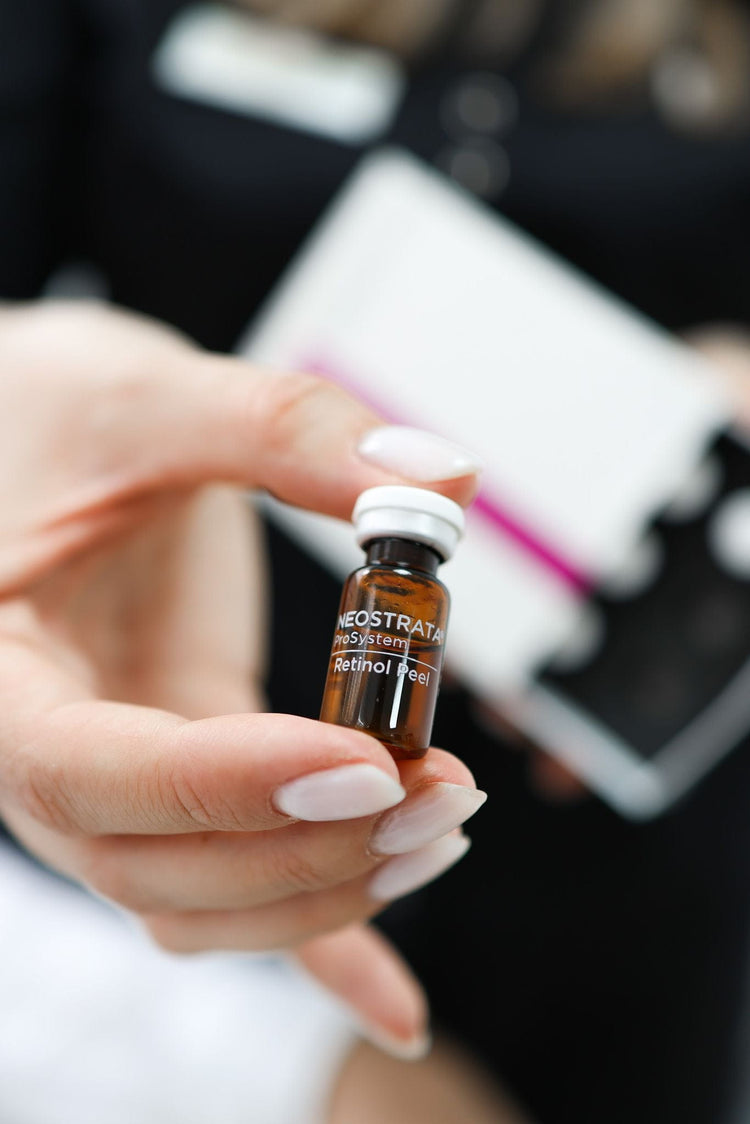Potential Skin Reactions
Skin reactions are a common occurrence when using any chemical treatment, and retinol peels are no exception. From mild dryness and redness to more serious issues like irritation, peeling, and even sensitivity to sunlight, understanding the potential risks is crucial before undergoing a retinol peel in Kingston Upon Thames.
Redness and Irritation
One of the most common skin reactions associated with retinol peels is redness and irritation. This often occurs immediately after the treatment and can last for a few days as the skin adjusts to the increased retinol concentration. The skin may also feel tight, dry, or flaky. These side effects are typically mild and manageable with proper skincare practices.

Dryness and Flaking
Dryness and flaking are also common occurrences following a retinol peel. This is because retinol exfoliates the skin, which can temporarily disrupt its natural moisture barrier. To combat this, it’s essential to moisturize diligently and use hydrating products formulated for sensitive skin.
In some cases, individuals may experience more severe reactions such as burning, itching, or blistering. If these symptoms arise, it is crucial to consult a dermatologist immediately.
Sensitivity to Sunlight
One of the most concerning potential side effects of retinol peels is increased sensitivity to sunlight. Retinol can make skin more susceptible to sunburn and UV damage, even on cloudy days.
- It’s vital to wear broad-spectrum sunscreen with an SPF of 30 or higher daily, both before and after a retinol peel treatment.
- Avoid direct sun exposure during the day, especially for several weeks following the peel.
Long-Term Effects
The potential long-term effects of retinol peels extend beyond the immediate post-treatment period. While many side effects are temporary, continued use or improper skincare practices can contribute to lasting skin concerns.
Increased Skin Sensitivity
One of the most concerning potential long-term effects of retinol peels is increased skin sensitivity. Repeated exposure to retinol can weaken the skin’s barrier function, making it more susceptible to irritation, dryness, and inflammation even after discontinuing peel treatments.
- This heightened sensitivity may lead to a greater likelihood of experiencing adverse reactions from other skincare products or environmental factors.
- It can also increase the risk of developing conditions like eczema or rosacea in predisposed individuals.
Hyperpigmentation (Dark Spots)
Another long-term concern associated with retinol peels is hyperpigmentation, commonly known as dark spots.
While retinol can initially help exfoliate and improve skin tone, overuse or improper application can lead to the opposite effect. Retinol can trigger melanin production, potentially causing post-inflammatory hyperpigmentation (PIH) in areas of irritation or inflammation.
PIH typically manifests as dark spots or patches on the skin that develop after injury or inflammation, including that caused by retinol peels.
Premature Aging
Premature aging is a potential long-term risk associated with frequent retinol peel treatments. Retinol can accelerate cell turnover, which while beneficial for exfoliation, can also stress the skin and lead to premature thinning of the epidermis.
This thinning can make the skin more susceptible to wrinkles, fine lines, and loss of elasticity, contributing to an accelerated aging appearance.
Contraindications
It’s crucial to be aware of potential contraindications before undergoing a retinol peel. Certain medical conditions, medications, or allergies may make this treatment unsuitable or increase the risk of adverse reactions. Consulting a qualified dermatologist beforehand is essential to ensure the safety and efficacy of the procedure.
Pregnancy and Breastfeeding
During pregnancy and breastfeeding, it’s generally recommended to avoid retinol treatments due to limited research on their safety for both mother and child. Retinol can be absorbed into the bloodstream, and its potential effects on a developing fetus or nursing infant are not fully understood.
If you are pregnant or breastfeeding, discuss alternative skincare options with your healthcare provider.
Certain Skin Conditions
Certain skin conditions may contraindicate retinol peels. Individuals with active acne flares, severe rosacea, eczema, or psoriasis should avoid retinol treatments as they can worsen these conditions.
Those with very sensitive skin or a history of allergic reactions to skincare products should also exercise caution and consult with a dermatologist before undergoing a retinol peel.
Active Infections or Breakouts
Contraindications are specific circumstances where a particular treatment is not recommended due to potential risks or adverse effects. In the context of retinol peels, there are several medical conditions, medications, or sensitivities that may make this treatment unsuitable.
Active infections or breakouts can worsen with retinol treatment. Retinol promotes cell turnover and exfoliation, which can irritate inflamed skin and potentially spread infection. Individuals with active acne, eczema, rosacea, or any other skin condition marked by inflammation should consult with a dermatologist before considering a retinol peel.
Some medications, such as retinoids (oral or topical), antibiotics, and certain chemotherapy drugs, can interact with retinol and increase the risk of side effects. It is crucial to disclose all medications you are taking to your dermatologist before undergoing a retinol peel.
Finding a Qualified Practitioner

When considering any chemical skin treatment, it’s essential to find a qualified practitioner who understands your individual skin type and concerns. A skilled dermatologist or esthetician will assess your medical history, current skincare routine, and desired outcomes to determine if a retinol peel is appropriate for you.
Credentials and Experience
Finding a qualified practitioner with experience in performing retinol peels is crucial for ensuring safety and optimal results. Look for practitioners who are licensed estheticians or dermatologists with specialized training in chemical peels.
It’s important to inquire about their experience with retinol peels specifically, as this procedure requires specific knowledge and expertise. A qualified practitioner will be able to assess your skin condition, discuss potential risks and benefits, and create a personalized treatment plan tailored to your needs.

Don’t hesitate to ask questions and clarify any concerns you have before undergoing the treatment. It’s also a good idea to check online reviews or seek recommendations from friends or family who have had positive experiences with retinol peels performed by qualified practitioners in Kingston Upon Thames.
Consultation Process
Consulting a dermatologist is crucial for determining if a retinol peel is suitable and minimizing potential risks. During the consultation, be prepared to discuss your medical history, skincare routine, and desired outcomes. The dermatologist will assess your skin type and condition to determine the appropriate strength of retinol and treatment plan.
A skilled practitioner will guide you through the entire process, explain any potential side effects or complications, and answer any questions you may have. They can also provide post-treatment instructions to ensure proper healing and minimize the risk of adverse reactions.
Aftercare Instructions
Aftercare is crucial for maximizing the benefits of a retinol peel and minimizing the risk of complications. A qualified practitioner will provide specific aftercare instructions tailored to your individual needs, but here are some general guidelines:
Protect your skin from the sun: Retinol makes your skin more sensitive to sunlight. Always wear broad-spectrum sunscreen with an SPF of 30 or higher, even on cloudy days. Avoid direct sun exposure for several weeks after the peel.
Moisturize regularly: Retinol can dry out the skin. Use a hydrating moisturizer formulated for sensitive skin multiple times daily to keep your skin hydrated and prevent peeling.
Avoid harsh skincare products: During the healing process, avoid using any products that contain exfoliating ingredients like alpha-hydroxy acids (AHAs) or beta-hydroxy acids (BHAs), as these can irritate sensitive skin. Stick to gentle cleansers, moisturizers, and sunscreens.
Be patient: It takes time for your skin to recover after a retinol peel. Allow at least 7-10 days for initial redness and irritation to subside. Full results may take several weeks to become apparent.
If you experience any unusual or severe symptoms, such as burning, itching, blistering, or fever, contact your practitioner immediately.
Discover how a Retinol Peel can enhance your skin with Dr. Laura Geige at It’s Me & You Clinic.
- How Long To Recover From Tear Trough Filler - August 16, 2025
- How Long Does Radiesse Really Last? - August 15, 2025
- How Jaw Fillers Improve Jawline Symmetry In Surrey Clients - August 4, 2025
